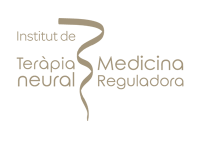10 Minutes
The approach of healing the whole mind, spirit, and body is known as holistic health and wellness. While a standard healthcare professional may treat numerous symptoms you exhibit without taking into account other aspects, a holistic wellness practitioner will look for the core cause of your problems and treat them all accordingly.
The holistic approach enables you to get a better knowledge of how your physical, emotional, and spiritual selves interact. To put it another way, the holistic approach considers the entire human body.
The rest of your body will most likely notice if one component of your body is out of alignment. People with gastrointestinal issues, for instance, are more likely to develop depression, anxiety, and mood disorders, while those with nutrient deficiencies may suffer mental and physical consequences. Clean food, exercise, and conventional medicine are all part of a holistic wellness approach, as is an understanding of vitamin levels, hormone levels, intestinal health, and other factors.
Hormone therapy, vitamins and supplements, acupuncture, essential oil therapy, and dietary counseling are some of the most prominent holistic wellness methods. Several holistic wellness professionals provide both holistic and conventional medical services, such as:
- Wellness Evaluation
- Women’s Health Examination
- Prescription medications
- Acute treatment (Suturing, Wound Treatment Etc.)
Since holistic wellness techniques combine conventional medicine with a whole-health strategy, clinicians aim to assist patients not only alleviate symptoms and disease but also address the underlying nutrition and lifestyle choices that might result in illness and disease in the first place.
A holistic health professional, for instance, would work with a diabetic patient to develop a functional exercise and nutrition plan, as well as prescribe insulin, test strips, and other supplies. In addition to providing blood pressure medicine, a holistic healthcare professional may recommend lifestyle modifications like a better diet and more exercise, or refer the patient to a nutritionist for further treatment.

FAQs
A UNIQUE METHOD
successful and proven integrative holistic conceptWellness TREATMENT LASTING APPROACH
0 Before
Send Request
0 Before
Define Treatment Goals
1 week
Assessments
1-4 week
Integrative Holistic Therapies
5-12 week
Aftercare
12+ week
Refresher Visit
Wellness Insights
latest news & research on Wellness
Stress Management
Stress management isn't a magic wand that makes stress vanish. Instead, it's a toolkit full of strategies and techniques that help you handle stress better
read more
Leadership Burnout
Leadership burnout, often termed executive burnout or executive stress syndrome, encapsulates the exhaustive toll that high-stakes leadership roles take on individuals
read moreAccreditations





























































